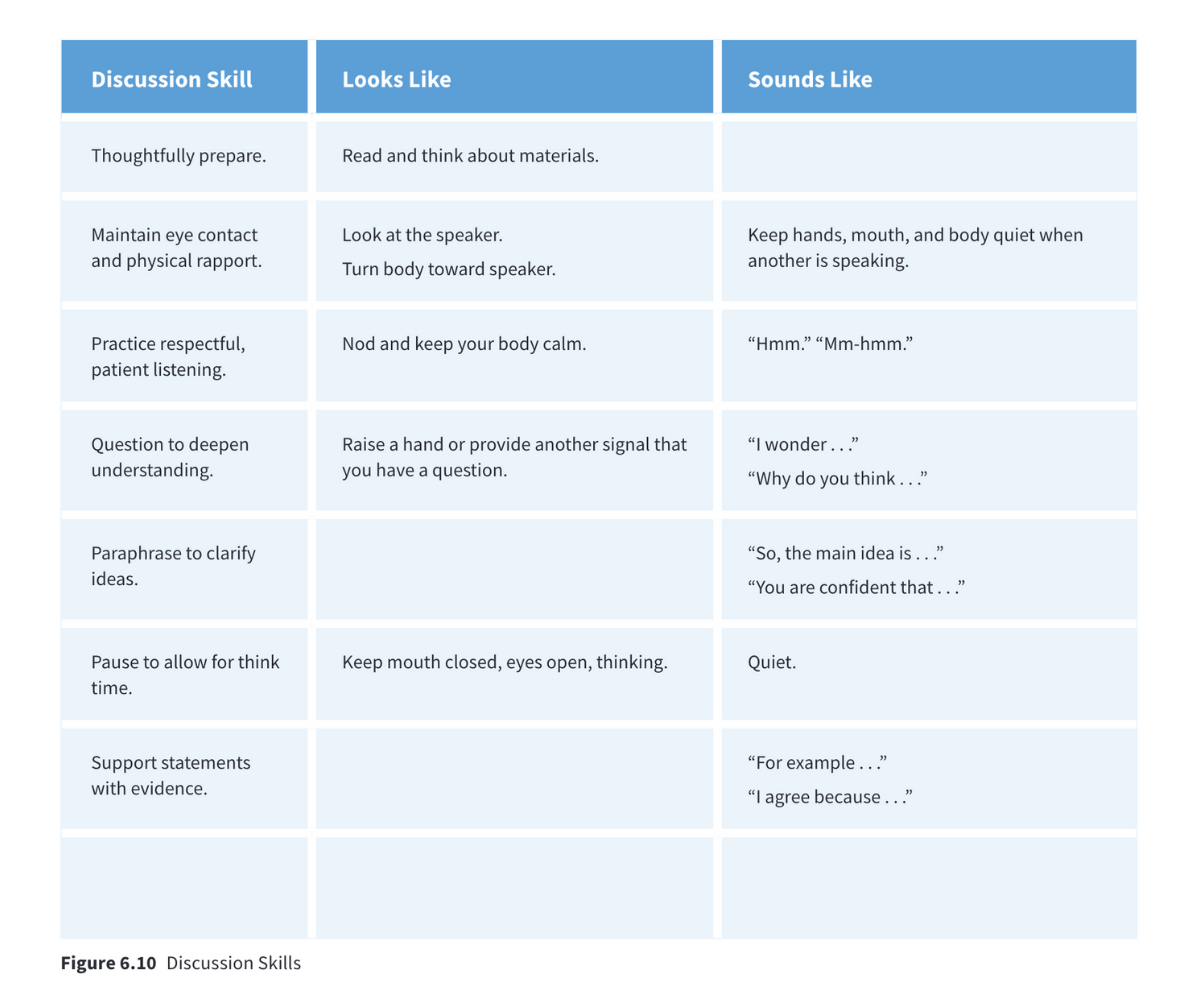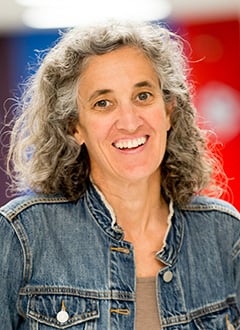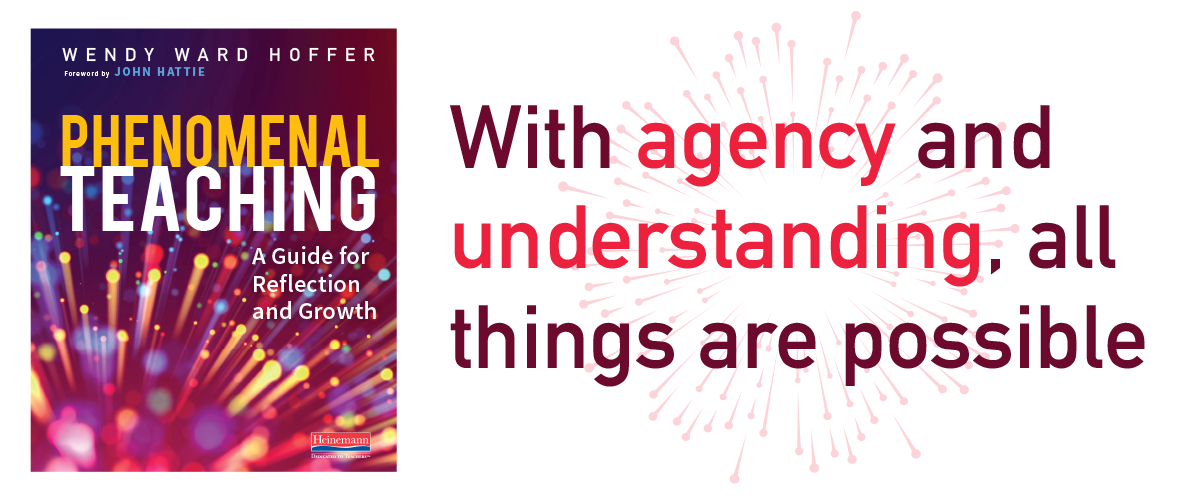
Currently, the world is participating in long overdue conversations around race and inequity. How can teachers help to scaffold productive and engaging conversations with their students around these topics?
In chapter 6 of Phenomenal Teaching: A Guide for Reflection and Growth, Wendy Ward Hoffer offers guidance on how to prepare for and facilitate discourse.
The following has been adapted from Phenomenal Teaching. This post was originally posted July 2020.
How: The Elements of Discourse:
When we see learners immersed in a conversation about a learning target, listening to and responding to peers’ ideas, and seeking intently to make meaning for themselves, we can be certain we are witnessing the wonder of discourse. As with most magical moments in teaching, discourse at this level does not happen by accident. Effective classroom talk is the result of intentional preparation, thoughtful scaffolding, and targeted facilitation.
Effective classroom talk is the result of intentional preparation, thoughtful scaffolding, and targeted facilitation.
Structure:
Discourse, large or small, short or long, takes time and space. We serve learners best when we intentionally plan by providing protocols or structures that will ensure focus, progress, and accountability.
Preparation:
In preparing for discourse, even brief conversations, students benefit from time to gather their thoughts, as well as from formats to hold their thinking. Research on think time suggests that when participants are afforded ample time to ponder, their responses will be more thoughtful and in-depth.
Protocols:
Igniting great conversation is an art. Some learners are ready to dive in and discuss in rich, meaningful ways, but most benefit from structures and protocols designed to surface ideas, equalize voices, and create fertile ground for thinking. When selecting a discourse protocol, we consider:
- Groupings—what size will work best, from pairs to whole class?
- Timing—will this discussion happen in a few minutes or span the length of a week or more?
- Content—what structures will most successfully support the grapple for understanding?
Discussion Skills:
To engage effectively in classroom discourse, students need to develop and practice a known set of skills that will serve them throughout their relational lives. We need to provide clarity on how each looks and sounds, then to offer models, scaffolds, ongoing practice, and reflection. You might take them one at a time with your students, providing a minilesson on each over the course of a few weeks, circling back to provide additional modeling as needed. See how the discourse flourishes as a result. Figure 6.10 lists some starting places for teaching discussion skills. What might you add?
Accessible Talk:
There are many reasons learners might not feel ready to talk: fear of failure, limited language skills, cultural norms, low confidence, shyness, and more. And yet allowing enthusiastic speakers to dominate the airwaves robs the reluctant ones of much-needed opportunities to practice their oral language skills. We can prompt all learners to use their voices when we initially set the bar low: ask a straightforward question, “What is your favorite ice cream?” Allow oral rehearsal with partners through a pair and share before asking anyone to speak aloud before the whole group. Cue less willing learners ahead of time so they have opportunities to prepare with confidence, as in “When we come back together as a group, I would like to ask you to share your thinking, so please be ready.”
We grow learners’ confidence to speak in class when we:
- Respond positively to all speakers, honoring their ideas and saluting their courage, as in “Thank you, Adam, for bravely sharing your thinking this morning.”
- Call on everyone, not just those with hands raised or bright ideas. You might try any system of drawing cards or popsicle sticks, use an app, or just keep track of who has and has not spoken yet today or this week.
- Demonstrate that you value the thinking of every learner by creating regular invitations for each to speak and have their voice heard. Frequently invite discourse.
- Model and expect wait time, and hold off energetic speakers to allow time for classmates to gather their thoughts and join in.
Discourse FAQs
“What if my students won’t talk?”
Start small. Be patient. Give them an easy topic at first, and just one partner with whom to share. Raise the bar slowly, with more difficult topics, a shift into trios. Then, add some accountability, as in “So, what did you and your group explore?” Celebrate each and every contribution. Keep modeling and practicing.
“What if they all want to talk at once?”
If learners are alive with ideas, that is a good time to shift into duos so everyone can get their thinking out and their voices heard. You might also invite learners to stop talking and do some writing when the enthusiasm brims. Turn taking and listening require practice—narrate their benefits, model, and notice and name successes.
“But I don’t have time for this—there is too much content to cover.”
Talking takes time. Thinking takes time. If we want learners to understand deeply, we need to devote the time. Discourse can be quick, mixed throughout a range of learning experiences. When it comes to a deep dive into discussion, choosing a generative topic helps learners really uncover important content in meaningful ways. Their engagement will propel their understanding.
•••
Whether it happens in person or online, cultivating discourse it is only the beginning. To learn more about this topic and other important concepts covered in this book visit Heinemann.com, or download a sample chapter below.

Wendy Ward Hoffer is the author of the new Phenomenal Teaching, as well as Cultivating STEM Identities, Minds on Mathematics and Science as Thinking, all published by Heinemann. She is also the author of Developing Literate Mathematicians. Wendy serves as Senior Director of Content Development and Publications for the Denver-based Public Education and Business Coalition (PEBC) and travels nationally to provide professional learning to teachers at all levels. Wendy is passionate about promoting rich thinking in all content areas, especially math and science. Wendy received an MA in Science Education from Stanford University and earned National Board Certification while teaching middle school math and science.



